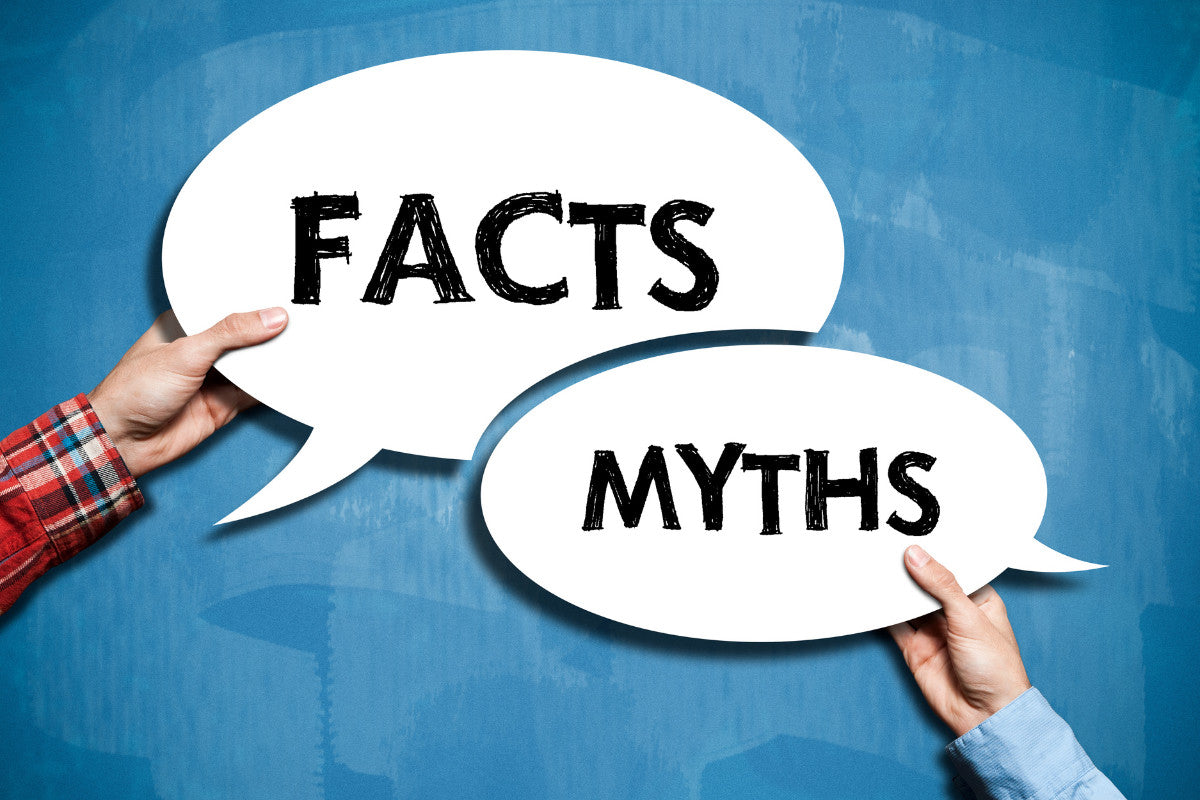Your Cart is Empty
FREE SHIPPING OVER $45 & RETURNLESS REFUNDS

Let's talk arthritis. Now, you've probably heard a fair few myths about it, and today, I'm here to set the record straight.
The first thing people think when they develop pain in their joints is that they have arthritis. Now, that's not always the case. There are other things that can come into play too, like tendinitis, bursitis, or even past injuries that could be causing you pain.
There are two main types of arthritis: rheumatoid arthritis (RA) and osteoarthritis (OA) which are conditions that result in inflammation and pain in your joints. OA is the most common form of arthritis, and it occurs when the cartilage found between your bones wears down. RA typically occurs when your immune system attacks healthy body tissue.
If you have arthritis, moving your body is probably the last thing you want to even think about, but exercising is actually extremely important. It can help increase your mobility, strengthen your muscles, and reduce your joint pain.
Exercises that will work best for you depend on your type of arthritis and which joints are involved. Typically, a low-impact exercise is best because it doesn't put a lot of stress on your joints. These types of exercises consist of activities such as swimming, cycling, or yoga.
Whatever exercise you do, you want to be sure you're focusing on exercises that will increase your range of motion, strengthen your muscles, and improve your balance.
**Speak to your doctor before beginning any new exercise routine.
The risk of getting arthritis increases as you age, but there are other factors that can increase your risk of getting it. Arthritis is most seen in older adults, but it’s something that can occur in people of any age.
OA is the most common form of arthritis found among older people, while RA tends to be present in people between the ages of 20 and 40. Cases of arthritis have been found in some people even as young as 18.
Now, this one's partially wrong. There isn’t any way to prevent every case of arthritis, but you can try to eliminate or minimize risk factors to slow down the progression.
For example, if you have excess body weight, you may have an increased risk of getting arthritis in your knees. Maintaining your weight can help lower that risk.
Injuries can also play a factor when it comes to arthritis. Protecting your joints during physical activity can help reduce the risk for arthritis later in life.
Both hot and cold treatments can help relieve pain symptoms caused by arthritis. Hot treatments, such as soaking in a warm bath or using a heating pad, can help to reduce stiffness and discomfort.
Cold treatments, like wrapping an ice pack around your joints or using a cold compress, can work to reduce inflammation and swelling around your joints.
Though there isn't a cure for arthritis, there are things that you can do to help find relief. Apart from various hot and cold treatments, there are some topical OTC products, like pain creams and supplements, that can help. Though it can't necessarily cure arthritis, it can help you get back to doing the things you love.
Let me know what topics you're interested in, and I'll do my best to include them in future blogs! Email me at mark@outbackoil.com
Great question, Mark. Sorry to hear that you’re experiencing nerve damage. Nerves are pretty remarkable in their ability to regenerate, although the process can take time and varies depending on the severity of the injury. When nerves are damaged, they can regenerate, but the rate of regeneration differs from person to person. It’s important to note that while nerves can heal, the process may not always result in a full recovery of function.
Had an L2 burst in 2013 have alot of nerve damage ass and feet do nerves ever regenerate ever
Larry Whitt
January 05, 2025
I have Stenosis in C 4 5 6 in my neck. I have had Physical Therapy, 2 injections without any pain relief. Will under go medial block procedures next week. Has anyone had surgery for this or continue with other procedures?